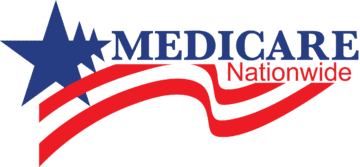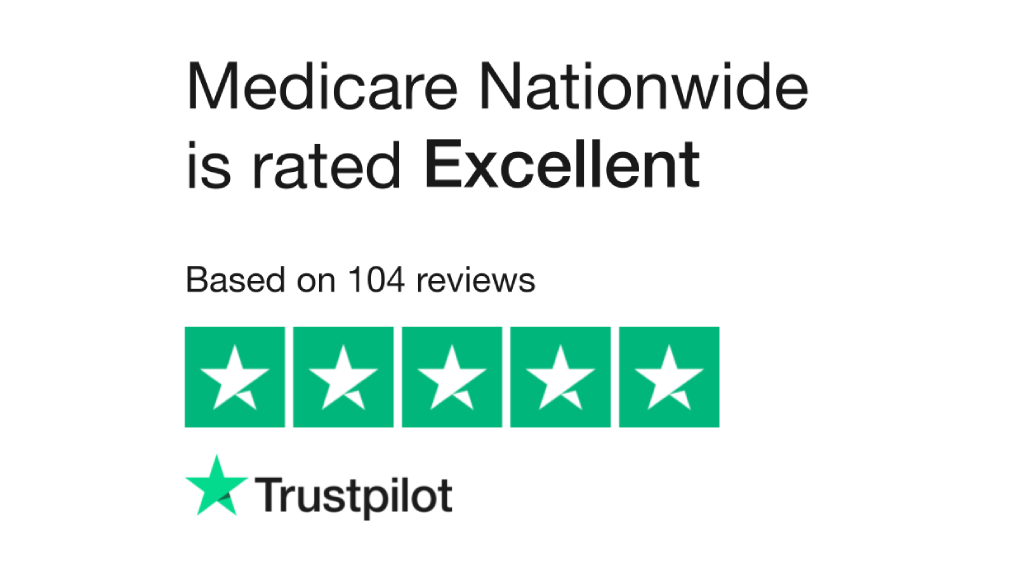Medicare Costs
Medicare funds a large portion of our nation’s healthcare system. According to the most recent Medicare data these numbers can be large.
The average inpatient hospital stay costs Medicare and it’s beneficiaries, $13,687. The average doctor visit is around $96 dollars per visit. For outpatient emergency department visits the average costs is $1,022 and 30 day prescription refills cost around $69 per month.
Fidelity Investments estimates that the average couple retiring today at age 65 will spend a staggering $280,000 on health care during the remainder of their lives.
These are large costs and for many beneficiaries Medicare picks up a portion, but a significant component is out-of-pocket. To eliminate the out-of-pocket costs you need to be familiar with the portions that Medicare does not cover.
Medicare Basics
Medicare is a federal program created to help seniors offset medical costs. It is fully regulated by the federal government, but in many cases Medicare partners with private insurance companies to help administer the program.
There are four basic parts to Medicare — Part A, B, C, & D.
Medicare Part A
The easiest way to think about Part A is to think of hospitalization.
Part A is hospital insurance and will cover emergency room visits and inpatient care in addition to home healthcare, skilled nursing facility care and hospice care.
Medicare Part B
This is medical insurance for your doctor and specialist. It will cover preventive healthcare, diagnostics and treatment for ongoing conditions.
Part B covers a little more than Part A since it also includes preventative services on top of normal medical services. Clinical research, ambulance services, durable medical equipment, mental health services, and outpatient prescription drugs. These services will also be available at no cost if Part B recipients get care from a provider that accepts assignment.
Parts A & B are often referred to as Original or Traditional Medicare. Most Medicare recipients have access and are enrolled in these parts. They do not include prescription drugs. This is a shock to many seniors, because medication is a large portion of their health care costs.
Medicare Part C
Medicare Part C is an optional portion of Medicare. It is commonly referred to as Medicare Advantage. The purpose of Advantage plans is to eliminate many of the gaps in Medicare coverage and assist with out-of-pocket costs that seniors would be stuck paying.
Advantage plans are not the only way seniors can use to eliminate gaps in coverage. Medicare Supplement policies are available to make up those extra coverages that Original Medicare does not cover.
There are pros and cons to using an Advantage plan to eliminate coverage gaps. We have addressed many of those issue in another article on Medicare Advantage plans.
Medicare Part D
We mentioned that prescription drugs are not covered under Original Medicare. This is true, but Medicare carved out a section devoted to medication. It is Medicare Part D. Part D or some type of prescription drug coverage is mandatory by the federal government, but it as separate coverage, and must be applied for. There are different premiums for this coverage as well.
All prescription drug plans (Part D) are regulated by the federal government but administered by private insurance companies.
This appointment is meant to alleviate any concerns and there is no-cost or obligation to make a change.
Services that Medicare Does Not Cover
Ultimately, you are concerned about the potential health conditions that Medicare does not cover. We have addressed one of the big ones which is prescription drugs, but Medicare has created the Part D plan to meet those needs of seniors to cover prescriptions.
Here’s a short list of the items and services not covered by Original Medicare:
- Long-term care (also called Custodial care )
- Most dental care
- Eye exams related to prescribing glasses
- Dentures
- Cosmetic surgery
- Acupuncture
- Hearing aids and exams for fitting them
- Routine foot care
As you know, vision and dental can be expensive and is an expense that all people, especially seniors need. Many Part C Advantage plans will offer dental and vision as part of their packages. But if you do not have a Part C plan those plans can be purchased individually at reasonable premiums with expansive coverage.
In case, you wonder about dental costs, here’s a common scenario we often see with dental costs. Dentures and implants are common among seniors. The cost for these services could run anywhere from $1,000 to over $5,000 for a complete set. Then you have your routine cleanings and x-rays costing around $200. Any fillings you may need cost about $150 to $200. And implants can run upwards of $4,000.
Vision coverage can be slightly different. Routine vision checks and corrective lens are not covered; however, if you have an eye condition such as glaucoma or cataracts Original Medicare will cover those procedures.
International Travel
Many seniors dream of spending their retirement years traveling the world. Even if you plan an international trip every couple of years or one big dream trip, you need to be careful.
Medicare does not cover medical expenses outside the country.
And emergencies do happen. Occasionally you even hear stories of people with medical emergencies on international flights. A friend of mine was visiting the Caribbean and had to be airlifted to another island for emergency appendectomy.
These emergencies can get expensive very quickly.
Long-term care
Medicare does not cover long-term care in a nursing or assisted facility center.
An American turning 65 today will spend $138,000 in long term care costs, according to a federal 2017 Bipartisan Policy Center report.
If this is a concern, you should look into a long-term care policy. Be ready, these policies can be expensive, but the younger you are when you purchase the policy the better off you are.
Observation vs. admission
If you do go to the hospital make sure you know the difference about whether you have been truly admitted or just their for observation. Medicare distinguishes between the two.
It can make a difference in what Medicare will cover if your trip to the hospital involves after-care for skilled nursing.
Let’s pretend you hurt your knee playing golf and end up in the hospital. You are there for a couple days, but after you leave you need rehab for your injury.
Skilled nursing care is covered through Medicare Part A if you have been admitted for at least three days. However, if the hospital keeps you there for observation, your rehab would not be covered.
Not Medically Necessary
This one is tricky. What does medically necessary really mean? According to Medicare, medically necessary services and supplies are those that are “needed to diagnose or treat an illness, injury, condition, disease, or its symptoms, and that meet accepted standards of medicine.”
For example example, if you break your arm and need physical therapy that would be covered. However, if you keep going to therapy after you have “sufficiently” recovered, Original Medicare would not cover those extras therapy visits and you would need to pay.
Deductibles, Copays, and Out of Pocket Costs
It’s not only certain items that are not covered by Original Medicare, there are also limits to the amount they will cover.
For both Part A and Part B, there are deductible issues and out of pocket costs such as extra expense that will you still need to pay.
For example, under Part A there is a limit to how many days of hospitalization is covered. If you have to stay in the hospital beyond 60 days, you will have to pick up the cost after that time period.
Here’s an example breakdown in time and potential costs:
- $1,676 deductible for each benefit period
- Days 1-60: $0 coinsurance for each benefit period
- Days 61-90: $419 coinsurance per day of each benefit period
- Days 91 and beyond: $838 per each “lifetime reserve day” after day 90 for each benefit period (up to 60 days over your lifetime)
- Beyond lifetime reserve days: all costs
Regular doctor visits you pay under Part B also have limits. There will be a deductible that you will have to pay and then you will pay 20% of the approved amount. Sometimes this doesn’t sound terrible, but between diagnostic tests and other visits the cost could often range into the tens of thousands of dollars.
This is an idea of the typical out-of-pocket costs that Part B Medicare will not cover:
- The standard Part B premium amount is $185 per month
- Part B deductible is $257.
- After your deductible is met, you typically pay 20% of the Medicare-approved amount for most doctor services (including most doctor services while you’re a hospital inpatient), outpatient therapy, and Durable medical equipment (DME)
Set Appointment
This appointment is meant to alleviate any concerns and there is no-cost or obligation to make a change.
This appointment is meant to alleviate any concerns and there is no-cost or obligation to make a change.
How Do You Cover What Medicare Doesn’t?
We’ve talked about this briefly. For benefits such as dental or vision, there are plans available to all seniors. For prescription drug benefits, you need to find a Part D plan if you aren’t covered through another plan such as an employer.
What about the other coverages?
One option is Medicare Part C, otherwise known as Medicare Advantage. The positives of Advantage plans is that they often bundle a Part D plan as well as vision and dental.
One of the negatives of Medicare Advantage is that they are not available everywhere geographically and you are limited to the outlets of care.
The other option to pick up those missing coverages is through a Medicare Supplement policy. These policies have a range of plans and options from Plan A through Plan N. Each plan has a different amount of coverage. You can find more information about the various Medicare Supplements coverages in many of our Medicare Supplement articles.
Medicare is great coverage, but as we have shown there are gaps. Not to worry, because we provide access to a wide variety of companies offering Medicare Supplements, Medicare Advantage, Vision, Dental, and Part D plans.
Contact one of our agents at Medicare Nationwide and they can assess your needs and find you a plan that fits your budget and coverage needs.
Prefer to chat by phone? Give us a call at 1-888-559-0103.



